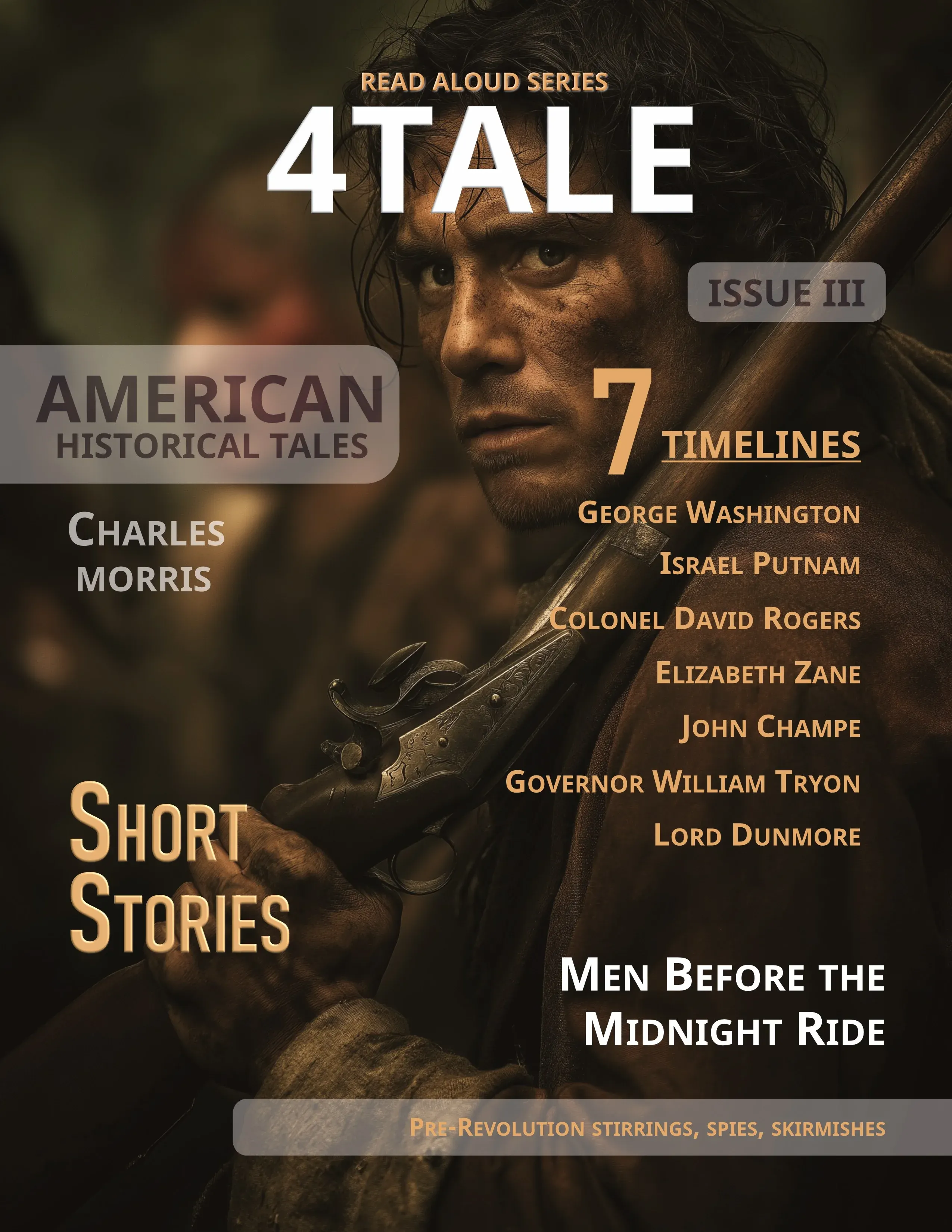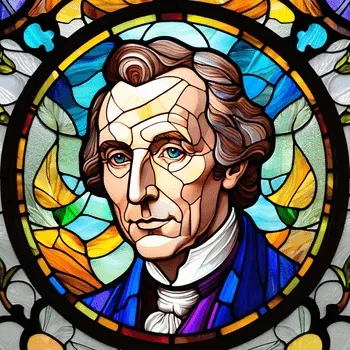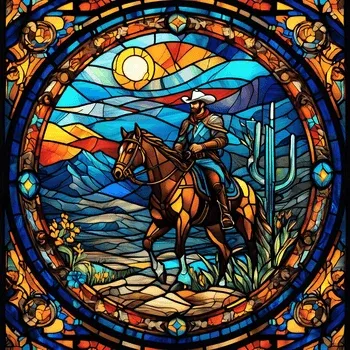The first blood shed by "rebels" in America, in those critical years when the tide of events was setting strong towards war and revolution, was by the settlers on the upper waters of the Cape Fear River in North Carolina. A hardy people these were, of that Highland Scotch stock whose fathers had fought against oppression for many generations. Coming to America for peace and liberty, they found bitter oppression still, and fought against it as their ancestors had done at home. It is the story of these sturdy "Regulators" that we have here to tell.
It was not the tyranny of king or parliament with which these liberty-lovers had to deal, but that of Governor Tryon, the king's representative in this colony, and one of the worst of all the royal governors. Bancroft has well described his character. "The Cherokee chiefs, who knew well the cruelty and craft of the most pernicious beast of prey in the mountains, ceremoniously distinguished the governor by the name of the Great Wolf." It was this Great Wolf who was placed in command over the settlers of North Carolina, and whose lawless acts drove them to rebellion.
Under Governor Tryon the condition of the colony of North Carolina was worse than that of a great city under the rule of a political "Boss." The people were frightfully overtaxed, illegal fees were charged for every service, juries were packed, and costs of suits at law made exorbitant. The officers of the law were insolent and arbitrary, and by trickery and extortion managed to rob many settlers of their property. And this was the more hateful to the people from the fact that much of the money raised was known to go into the pockets of officials and much of it was used by Governor Tryon in building himself a costly and showy "palace." Such was the state of affairs which led to the "rebellion" in North Carolina.
Many of the people of the mountain districts organized under the name of "Regulators," binding themselves to fight against illegal taxes and fees, and not to pay them unless forced to do so. The first outbreak took place in 1768 when a Regulator rode into Hillsborough, and Colonel Fanning wantonly seized his horse for his tax. It was quickly rescued by a mob armed with clubs and muskets, some of which were fired at Fanning's house.
This brought matters to a head. Supported by the governor, Fanning denounced the Regulators as rebels, threatened to call out the militia, and sent out a secret party who arrested two of the settlers. One of these, Herman Husbands, had never joined the Regulators or been concerned in any tumult, and was seized while quietly at home on his own land. But he was bound, insulted, hurried to prison, and threatened with the gallows. He escaped only by the payment of money and the threat of the Regulators to take him by force from the jail.
The next step was taken after Governor Tryon had promised to hear the complaints of the people and punish the men guilty of extortion. Under this promise Husbands brought suit against Fanning for unjust imprisonment. At once the governor showed his real sentiment. He demanded the complete submission of the Regulators, called out fifteen hundred armed men, and was said to intend to rouse the Indians to cut off the men of Orange County as rebels.
In spite of this threatening attitude of the governor, Husbands was acquitted on every charge, and Fanning was found guilty on six separate indictments. There was also a verdict given against three Regulators. This was the decision of the jury alone. That of the judges showed a different spirit. They punished Fanning by fining him one penny on each charge, while the Regulators were each sentenced to fifty pounds fine and six months' imprisonment. To support this one-sided justice Tryon threatened the Regulators with fire and sword, and they remained quietly at home, brooding moodily over their failure but hesitating to act.
We must now go on to the year 1770. The old troubles had continued,—illegal fees and taxes, peculation and robbery. The sheriffs and tax-collectors were known to have embezzled over fifty thousand pounds. The costs of suits at law had so increased that justice lay beyond the reach of the poor. And back of all this reigned Governor Tryon in his palace, supporting the spoilers of the people. So incensed did they become that at the September court, finding that their cases were to be ignored, they seized Fanning and another lawyer and beat them soundly with cowhide whips, ending by a destructive raid on Fanning's house.
The Assembly met in December. It had been chosen under a state of general alarm. The Regulators elected many representatives, among them the persecuted Herman Husbands, who was chosen to represent Orange County. This defiant action of the people roused the "Great Wolf" again. Husbands had been acquitted of everything charged against him, yet Tryon had him voted a disturber of the peace and expelled from the House, and immediately afterward had him arrested and put in prison without bail, though there was not a grain of evidence against him.
The governor followed this act of violence with a "Riot Act" of the most oppressive and illegal character. Under it if any ten men assembled and did not disperse when ordered to do so, they were to be held guilty of felony. For a riot committed either before or after this act was published any persons accused might be tried before the Superior Court, no matter how far it was from their homes, and if they did not appear within sixty days, with or without notice, they were to be proclaimed outlaws and to forfeit their lives and property. The governor also sent out a request for volunteers to march against the "rebels," but the Assembly refused to grant money for this warlike purpose.
Governor Tryon had shown himself as unjust and tyrannous as Governor Berkeley of Virginia had done in his contest with Bacon. It did not take him long to foment the rebellion which he seemed determined to provoke. When the Regulators heard that their representative had been thrown into prison, and that they were threatened with exile or death as outlaws, they prepared to march on Newbern for the rescue of Husbands, filling the governor with such alarm for the safety of his fine new palace that he felt it wise to release his captive. He tried to indict the sturdy Highlander for a pretended libel, but the Grand Jury refused to support him in this, and Husbands was set free. The Regulators thereupon dispersed, after a party of them had visited the Superior Court at Salisbury and expressed their opinion very freely about the lawyers, the officials, and the Riot Act, which they declared had no warrant in the laws of England.
As yet the Regulators had done little more than to protest against tyranny and oppression and to show an intention to defend their representative against unjust imprisonment, yet they had done enough to arouse their lordly governor to revenge. Rebels they were, for they had dared to question his acts, and rebels he would hold them. As the Grand Jury would not support him in his purpose, he took steps to obtain juries and witnesses on whom he could rely, and then brought charges against many of the leading Regulators of Orange County, several of whom had been quietly at home during the riots of which they were accused.
The governor's next step was to call the Grand Jury to his palace and volunteer to them to lead troops into the western counties, the haunt of the Regulators. The jurymen, who were his own creatures, hastened to applaud his purpose, and the Council agreed. The Assembly refused to provide funds for such a purpose, but Tryon got over this difficulty by issuing a paper currency.
A force of militia was now raised in the lower part of the colony and the country of the Regulators was invaded. Tryon marched at the head of a strong force into Orange County, and proceeded to deal with it as if it were a country conquered in war. As he advanced, the wheat-fields were destroyed and the orchards felled. Every house found empty was burned to the ground. Cattle, poultry, and all the produce of the plantations were seized. The terrified people ran together like sheep pursued by a wolf. The men who had been indicted for felony at Newbern, and who had failed to submit themselves to the mercy of his packed juries and false witnesses, were proclaimed outlaws, whose lives and property were forfeit. Never had the colonies been so spoiled on such slight pretence.
Thus marching onward like a conquering general of the Middle Ages, leaving havoc and ruin in his rear, on the evening of May 14, 1771, Tryon reached the great Alamance River, at the head of a force of a little over one thousand men. About five miles beyond this stream were gathered the Regulators who had fled before his threatening march. They were probably superior in numbers to Tryon's men, but many of them had no weapons, and they were principally concerned lest the governor "would not lend an ear to the just complaints of the people." These "rebels" were certainly not in the frame of mind to make rebellion successful.
The Regulators were not without a leader. One of their number, James Hunter, they looked upon as their "general," a title of which his excellent capacity and high courage made him worthy. On the approach of Tryon at the head of his men James Hunter and Benjamin Merrill advanced to meet him. They received from him this ultimatum:
"I require you to lay down your arms, surrender up the outlawed ringleaders, submit yourselves to the laws, and rest on the lenity of the government. By accepting these terms in one hour you will prevent an effusion of blood, as you are at this time in a state of war and rebellion."
Hopeless as the Regulators felt their cause, they were not ready to submit to such a demand as this. There was not an outlaw among them, for not one of them had been legally indicted. As to the lenity of the government, they had an example before their eyes in the wanton ruin of their houses and crops. With such a demand, nothing was left them but to fight.
Tryon began the action by firing a field-piece into the group of Regulators. At this the more timid of them—perhaps only the unarmed ones—withdrew, but the bold remainder returned the fire, and a hot conflict began, which was kept up steadily for two hours. The battle, at first in the open field, soon shifted to the woodland, where the opponents sheltered themselves behind trees and kept up the fight. Not until their ammunition was nearly gone, and further resistance was impossible, did Hunter and his men retreat, leaving Tryon master of the field. They had lost twenty of their number besides the wounded and some prisoners taken in the pursuit. Of Tryon's men nine were killed and sixty-one wounded. Thus ended the affray known as the battle of the Alamance, in which were fired the first shots for freedom from tyranny by the people of the American colonies.
The victorious governor hastened to make revengeful use of his triumph. He began the next day by hanging James Few, one of the prisoners, as an outlaw, and confiscating his estate. A series of severe proclamations followed, and his troops lived at free quarters on the Regulators, forcing them to contribute provisions, and burning the houses and laying waste the plantations of all those who had been denounced as outlaws.
On his return to Hillsborough the governor issued a proclamation denouncing Herman Husbands, James Hunter, and some others, asking "every person" to shoot them at sight, and offering a large reward for their bodies alive or dead. Of the prisoners still in his hands, he had six of them hung in his own presence for the crime of treason. Then, some ten days later, having played the tyrant to the full in North Carolina, he left that colony forever, having been appointed governor of New York. The colony was saddled by him with an illegal debt of forty thousand pounds, which he left for its people to pay.
As for the fugitive Regulators, there was no safety for them in North Carolina, and the governors of South Carolina and Virginia were requested not to give them refuge. But they knew of a harbor of refuge to which no royal governors had come, over which the flag of England had never waved, and where no lawyer or tax-collector had yet set foot, in that sylvan land west of the Alleghenies on which few besides Daniel Boone, the famous hunter, had yet set foot.
Here was a realm for a nation, and one on which nature had lavished her richest treasures. Here in spring the wild crab-apple filled the air with the sweetest of perfumes, here the clear mountain-streams flowed abundantly, the fertile soil was full of promise of rich harvests, the climate was freshly invigorating, and the west winds ripe with the seeds of health. Here were broad groves of hickory and oak, of maple, elm, and ash, in which the elk and the red deer made their haunts, and the black bear, whose flesh the hunter held to be delicious beyond rivalry, fattened on the abundant crop of acorns and chestnuts. In the trees and on the grasses were quail, turkeys, and pigeons numberless, while the golden eagle built its nest on the mountain-peaks and swooped in circles over the forest land. Where the thickets of spruce and rhododendron threw their cooling shade upon the swift streams, the brook trout was abundant, plenty and promise were everywhere, and, aside from the peril of the prowling savage, the land was a paradise.
It was not in Kentucky, where Boone then dwelt alone, but in Tennessee that the fugitive Regulators sought a realm of safety. James Robertson, one of their number, had already sought the land beyond the hills and was cultivating his fields of maize on the Watauga's fertile banks. He was to become one of the leading men in later Tennessee. Hither the Regulators, fleeing from their persecutors, followed him, and in 1772 founded a republic in the wilderness by a written compact, Robertson being chosen one of their earliest magistrates. Thus, still defiant of persecution, they "set to the people of America the dangerous example of erecting themselves into a separate state, distinct from and independent of the authority of the British king."
Thus we owe to the Regulators of North Carolina the first decided step in the great struggle for independence so soon to come. And to North Carolina we must give the credit of making the earliest declaration of independence. More than a year before Jefferson's famous Declaration the people of Mecklenburg County passed a series of resolutions in which they declared themselves free from allegiance to the British crown. This was in May, 1775. On April 12, 1776, North Carolina authorized her delegates in the Continental Congress to declare for independence. Thus again the Old North State was the first to set her seal for liberty. The old Regulators had not all left her soil, and we seem to hear in these resolutions an echo of the guns which were fired on the Alamance in the first stroke of the colonists of America for freedom from tyranny.








